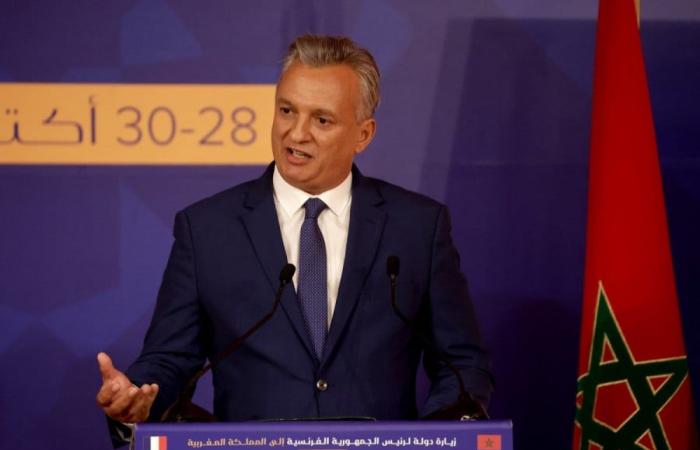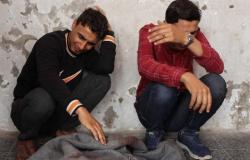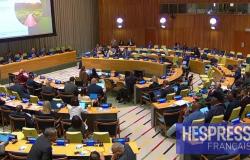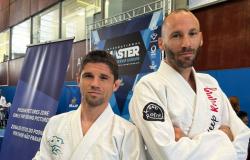This reform, he noted, aims to make the investment a structuring lever of sustainable growth, inclusive and creator of jobs, recalling that it resulted in a complete overhaul of governance, articulated around three pillars: a ministry dedicated to strategic investment policy, an “amed” promotion agency under its supervision, and modernized regional investment centers.
It was consolidated by the entry into force, in March 2023, of the new investment charter, which goes far beyond a simple incentive device, by introducing a structured premium system, targeting projects with high added value and taking into account territorial balances, recalled the minister who reports “very encouraging” results, with 191 validated investment projects, representing more than 31 billion euros and 150,000 jobs expected, 85% of which are already in progress.
Energy level, the Minister highlighted the pioneering role of the kingdom, recalling the publication, in July 2023, of the “offer Morocco” for green hydrogen, which aroused “a keen interest” of the private sector, with the results six major projects validated last month, representing more than 32 billion euros in investment.
These performances, he noted, reflect the solidity of the country’s fundamentals and its ability to attract reference partners. They also reflect Morocco’s ambition to actively contribute to the emergence of a new Euro-African investment model, based on complementarity, confidence and creation of shared value, added the Minister.
Evoking economic relations with France and Europe, Mr. Zidane underlined their strategic character: “These are historical, but also strategic partners, with whom we build a shared ambition for sustainable, equitable and mutually beneficial development,” he said.
In 2023, France asserted itself as the first foreign investor in Morocco, with more than 620 million euros in flows, and remains the first IDE stock holder, representing nearly 31% of the total, recalled Mr. Zidane, stressing that this dynamic was reinforced last October during the state visit of the French president Emmanuel Macron in Rabat, marked by the signing of 22 agreements and investment projects, in particular in the high speed sectors rail, green hydrogen and port infrastructure.
“The implementation is already underway,” he said, quoting the recent holding of the fourth meeting of the project monitoring committee of the project led by Total, CIP and AP Moller Capital, devoted to the validation of technical and strategic studies.
“We live a moment of rocking,” said Zidane, stressing that the world is crossed by energy, digital and industrial transitions which redesign world balances.
The reconfiguration of global value chains, carried by the dynamics of Nearshoring and Friendshuring, opens up a historic opportunity to strengthen complementarities between Europe and Africa, he argued.
-In this context, Morocco is positioned as “a connector country” between Europe and Africa, between the great transitions of this century, and between public ambition and private innovation. This positioning, the minister observed, is based on solid foundations: a proactive royal vision, a stable environment, modern infrastructure, competitive energy, and more than 50 free trade agreements.
He cited in particular the co-organization of the 2030 World Cup with Spain and Portugal as a concrete illustration of Euro-African Impact Cooperation.
The director general of the Moroccan Agency for Development of Investments and Exports (AMDIE), Ali Seddiki, who intervened during a panel entitled “Agenda 2063: a new era for the Europe-Africa Bloc” within the framework of the forum, stressed, meanwhile, that Morocco carries a clear strategic vision for the African continent, by positioning itself as a natural bridge between Europe and Africa.
This vision is based on two major foundations: collaboration and exemplarity, he said. It is part of a South-South dynamic, based on the sharing of experiences and know-how acquired by the kingdom with its continent partners and it has resulted in the last 25 years, by concrete achievements, said Seddiki.
Morocco has pointed out, has shown that it is possible to experience real economic takeoff, thanks to a coherent strategy, solid governance and a macroeconomic framework controlled. Among the pillars of this trajectory include political stability, budgetary discipline, as well as constant commitment in favor of sustainable and inclusive development, he noted.
The manager has also highlighted the quality of Moroccan infrastructure, as well as the dynamism of youth “real transformation engine” in the country.
“When Morocco is committed, Morocco realizes,” he said, insisting on the capacity for execution as a distinctive trait of the Moroccan approach in terms of investment and development.
Organized by the French economic publication “La Tribune” and the Aix Marseille Provence metropolitan area under the theme “Innovons ensemble”, the Marseille Europe-Africa Forum, which aims to be a major meeting highlighting the challenges, opportunities and synergies between African and European nations, brings together business leaders, investors and decision-makers of the two continents.








